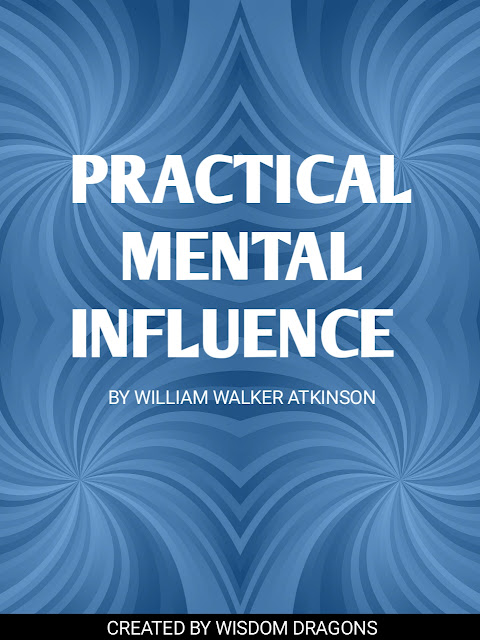THE RIDDLE OF LIFE/PART 9
CHAPTER
IX
THE
THREE THREADS OF THE CORD OF FATE
TO
the Greek there were three Fates who spun the cord of life. To the knower of
the Wisdom there are three Fates also, each of them ever spinning a thread, and
the three threads they spin are twisted into one, and form the strong cord of
destiny which binds or loosens man's life on earth. These three Fates are not
the women of the Greek legend; they are the three powers of the human
consciousness; the power to will, the power to think, the power to act. These
are the Fates which spin the threads of human destiny, and they are within the
man, not outside him. Man's destiny is self-made, not imposed upon him
arbitrarily from without; his own powers, blinded by ignorance, spin and twist
the cord that fetters him, as his own powers, directed by knowledge, liberate
his limbs from the self-imposed shackles, and set him free from bondage.
The
most important of these three powers is his power to think; man means thinker;
it is a Sanskrit root, and from this are derived the English man—identical with
the Sanskrit root—the German mann, the French homme, the Italian uomo, etc. The
thread of thought is woven into mental and moral qualities, and these qualities
in their totality form what we call character. This connection of thought and
character is recognised in the scriptures of nations. In the Bible we read: 'As
a man thinks, so is he.' This is the general law. More particularly: 'He that
looketh upon a woman to lust after her, hath committed adultery already with
her in his heart.' Or: 'He that hateth his brother is a murderer.' On the same
lines declares an Indian scripture: 'Man is created by thought; as a man
thinks, so he becomes.' Or: 'A man consists of his belief; as he believes, so
is he.' The rationale of these facts is that when the mind is turned to a
particular thought and dwells on it, a definite vibration of matter is set up.
and the oftener this vibration is caused the more does it tend to repeat
itself, to become a habit, to become automatic. The body follows the mind and
imitates its changes; if we concentrate our thought, the eyes become fixed, the
muscles tense; an effort to remember is accompanied with a frown; the eyes rove
hither and thither, as we seek to recover a lost impression; anxiety, anger,
love, impatience, have all their appropriate muscular accompaniments; the
feeling which makes a man inclined to throw himself from a height is the
inclination of the body to act out the thought of falling. The first step
towards a deliberate creation of character lies, then, in the deliberate
choosing of what we will think, and then of thinking persistently on the
quality chosen. Ere long there will be a tendency to show that quality; a
little longer, and its exercise will have become habitual. We spin the thread
of thought into our destiny, and find ourselves with a character bent to all
noble and useful ends. As we have thought, we have become. Thought makes character.
The
power to will is the second Fate, and spins a strong thread for the cord of
destiny. Will shows itself as desire; desire to possess, which is love,
attraction, in innumerable forms; desire to repel, which is hate, repulsion,
driving away that which is to us undesirable As truly as the magnet attracts
and holds soft iron, so does our desire to attract draw to us that which we
wish to possess and hold as ours. The strong desire for wealth and success
brings them into our grasp; what we will to have, steadily and persistently,
that comes to us sooner or later. Fleeting, indeterminate, changing fancies,
these have but little attractive force; but the man of strong will obtains that
which he wills. This thread of will brings us objects of desire and opportunities
for gaining them. Will makes opportunities and attracts objects.
The
third thread is spun by the power to act, and this is the thread which brings
into our destiny outward happiness or outward misery. As we act towards those
around us. so do they re-act upon us. The man who spreads happiness round him
feels happiness flowing in upon himself; he who makes others unhappy feels the
reaction of unhappiness upon himself. Smiles beget smiles, frowns frowns; an
irritable person arouses irritability in others. The law of the spinning of
this thread is: Our actions affecting others cause a re-action of a similar
nature on ourselves.
These
are the threads which make destiny, for they make character, opportunity and
environment; they are not cut short by death, but stretch onwards into other
lives; the thread of thought gives us the character with which we are born into
the world; the thread of will brings or withholds opportunities, makes us
'lucky' or 'unlucky'; the thread of act brings us favourable or unfavourable
physical conditions. As we are sowing, so shall we reap; as we are spinning, so
shall be destiny's cord in the future. Man is the creator of his future; man is
the maker of his destiny; man is his own Fate.
NEXT CHAPTER



Comments
Post a Comment